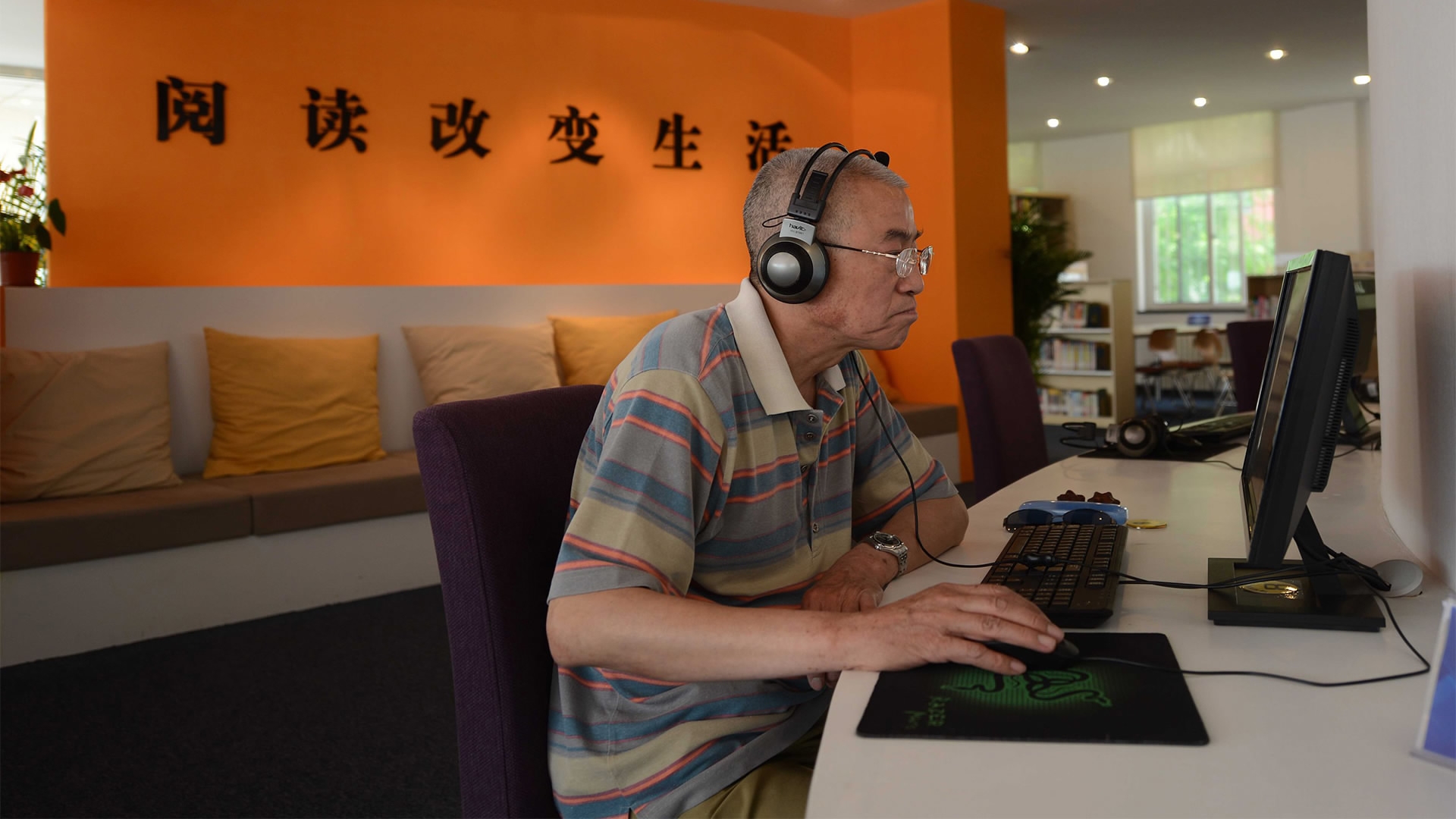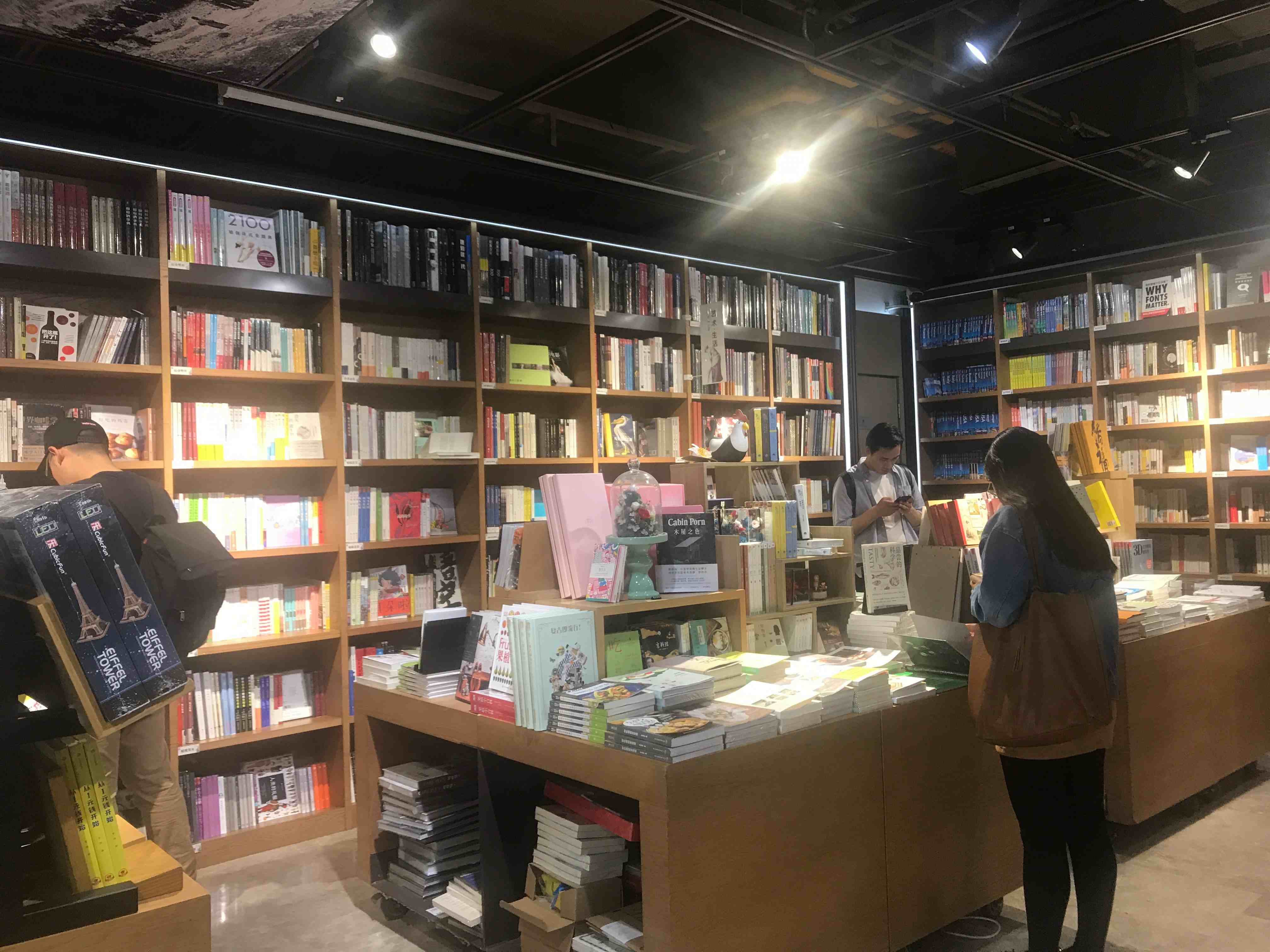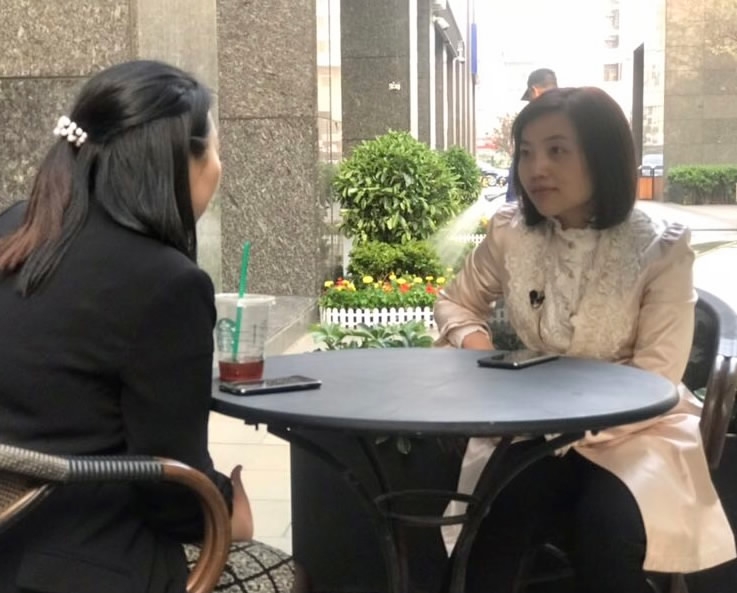
Culture
16:13, 23-Apr-2018
World Book Day: Chinese readers interact more online
Wang Mengzhen
02:20

April 23 is World Book Day, and whether you're someone who reads paperbacks, hardbacks or their electronic equivalent, it's a day for celebration. A recent national survey in China suggested people read nearly as many e-books as paper books last year - 4.7 paper book to 3.1 e-books - and the reason for this trend has much to do with the evolution of social media.
In the hustle and bustle of Beijing, Shen Lina takes a richly-deserved coffee break from work and reads online for 30 minutes.
After digesting both classic Chinese literature and English novels, doing a pop quiz and then "clocking-in" via WeChat, her reading for the day is officially done. Lina has been sharing her reading online this way for five months now.
For her, it has become routine.
"In the beginning, I shared my reading mainly because the platforms required me to do so and I could get extra bonuses from doing it. Gradually, I got used to reading this way. I'm not showing off though, I see it as a fulfilling task every day. This spirit for sharing has influenced more and more of my WeChat friends to join in," said Lina.
Lina added that reading online has made her more self-disciplined. She recalled that she once forgot to clock-in via WeChat due to being busy, but she stayed in her car late that night just to finish the challenge before returning home to look after her family.

CITIC Books in downtown Beijing. /CGTN Photo
CITIC Books in downtown Beijing. /CGTN Photo
Many still miss the days of being able to read for long hours without getting distracted, but online social networks are connecting readers and changing their habits.
A recent national survey published by the Chinese Academy of Press and Publication suggested about six in 10 Chinese adults read online for longer than 40 minutes every day.
Much of their material is accessed through China's most popular social networking platform, WeChat, and the survey revealed that people spent roughly 27 minutes of their reading time on this app.
Readers between the age of 18 and 50 are the most avid for online reading.
"As we are more occupied with work, it's not easy to actively keep reading. Also, many are overloaded with information and can feel insecure when they are reading. Therefore, by joining reading groups on various online platforms, people can encourage and supervise each other," said Wei Yushan, president of the Chinese Academy of Press and Publication.
More and more app developers are trying to grab a larger share of this market by using big data technology and artificial intelligence (AI).
The digital arm of New Oriental, one of China's leading educational service providers, has also joined the race.
It has invited millions of children who are already registered at public libraries across China to use its online reading platform, encouraging them to read English classics and share with their peers.
The company's chief says they're doing their utmost to maximize the children's reading experience.

Lina Shen (R) reads her phone attentively during a coffee break and shares what she has read with friends via WeChat. /CGTN Photo
Lina Shen (R) reads her phone attentively during a coffee break and shares what she has read with friends via WeChat. /CGTN Photo
"We focus on in-depth reading. Despite the fragmented reading time, we like to create systematic content for our online readers. We also have analysis of reading content so as to cultivate their comprehensive skills," said Sun Chang, CEO of New Oriental's Koolearn.
Not everyone is buying into this new model - especially with so many brick-and-mortar bookstores looking to make a comeback.
In the Citic Books of downtown Beijing, readers shared their thoughts with CGTN.
"What if I was so absorbed in whatever I was reading on my phone and suddenly a call came? When I read here, I just put my phone on mute and have some alone time."
"I can totally understand young people's online reading habits. But, for myself, I prefer sitting here and flipping through the pages."
When ink gives way to pixels, and reading alone gives way to learning together, one thing is for sure - we will all find fewer excuses not to read.

SITEMAP
Copyright © 2018 CGTN. Beijing ICP prepared NO.16065310-3
Copyright © 2018 CGTN. Beijing ICP prepared NO.16065310-3